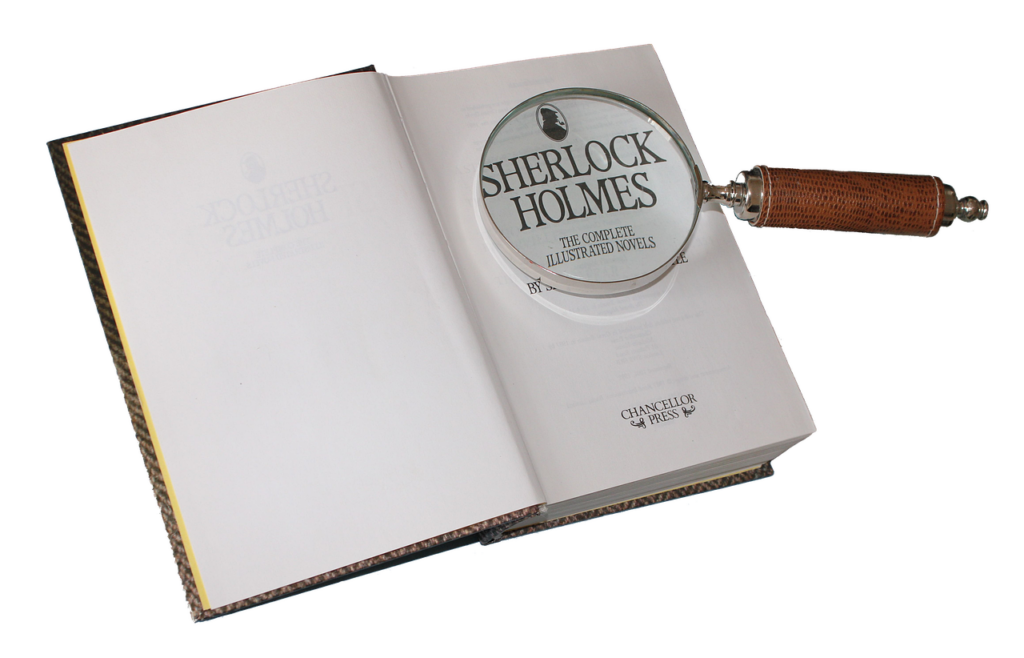This is part 3 in my series on POV. Here are links to part 1 and part 2.
If you remember my first post in this series, there are two factors that define point of view.
- Where the story is being told from (inside or outside it)
- How close to the plot that position is
The POVs we discussed last time — first person and limited third — require the writer to take on a role within the story. She writes either as the character herself or as someone close to the character. Same with observer-narrators. On a technical level, third person observer-narrator is virtually identical to limited third, and first person observer-narrator is virtually identical to regular first person.
So why is observer-narrator considered a different POV? The answer rests on that second factor — the character’s position to the plot.
“The narrator is one of the characters, but not the principal character — present, but not a major actor in the events. The difference from first-person [or limited third] narration is that the story is not about the narrator. It’s a story the narrator witnessed and wants to tell us.”
Ursula K. Le Guin, Steering the Craft
In other words, the story doesn’t happen to the observer-narrator. The story happens around them.
Read the first person observer-narrator example here.
Why would a writer use an observer-narrator? If the protagonist is fated to die, then using an observer-narrator can provide the reader with a constant thread to follow and the opportunity to see how the death effects those left behind. Perhaps the distance the observer-narrator keeps from the plot allows her to see the truth or at least give the reader a wider view of what’s happening.
But the best reason to use an observer-narrator is when you need or want what Christopher Vogler calls an “audience character.” He attaches this character type to the Ally archetype in his book, since observer-narrators are often allies of the protagonist.
“Dr. Watson illustrates a useful function for Allies of introducing us to an unfamiliar world. Like Watson, they can ask the questions we would be asking. When the hero is tight-lipped or where it would be awkward and unrealistic for him or her to explain things that are second nature to the hero but very exotic to us, an Ally can do the work of explaining everything as needed. The Ally is sometimes an ‘audience character,’ someone who sees the Special World of the story with fresh eyes as we would do if we were there.”
Christopher Vogler, The Writer’s Journey
In short, the observer-narrator is free to complement the protagonist’s perspective — to be conveniently ignorant of certain things and see things that the protagonist doesn’t. In Watson’s case, his role as narrator allows Arthur Conan Doyle to keep Sherlock’s methods and deductions a secret until after the mystery is solved, often in response to the perennial question of “But Holmes, how did you do it?” The fun of reading mysteries is to try and solve it before the characters do. Imagine how much Doyle would have to spoil if he wrote these stories from Sherlock’s perspective.

Read the third person observer-narrator example here.
When writing from an observer-narrator POV, the most important thing to remember is that observer-narrators are people too. Make them interesting, just like your protagonist and antagonist. They are primarily witnesses, but they shouldn’t be inactive. Let them act and speak and influence the plot in minor ways. Leave room in your story for them to have a presence, to show the reader who they are and what they can do.
Now it’s your turn. Remember that scene I asked you to write two versions of last time? I challenge you to write a third version of that same scene from the perspective of an observer-narrator. If your current scene doesn’t have a character that fits this role, write one in. Choose either first or third person. For bonus internet points, write a fourth version using the other grammatical person.
Share your scene, or a link to it, in the comments below. Have you ever used an observer-narrator in your stories? Have you used it without realizing it? Do you think you’ll use it again after trying it out for the writing challenge? Stay tuned for our next post on omniscient third.